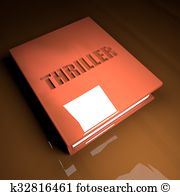 Hi all! Scott and I just got back from Dreamspinner’s author conference in Orlando. Going to author conferences is a great way to connect, to get those personal contacts and have some face to face meetings, but they also tend to be packed with classes. This is true of the DSP conference, but also large conferences like Romantic Times and so on.
Hi all! Scott and I just got back from Dreamspinner’s author conference in Orlando. Going to author conferences is a great way to connect, to get those personal contacts and have some face to face meetings, but they also tend to be packed with classes. This is true of the DSP conference, but also large conferences like Romantic Times and so on.
As writers, we should always be learning something. It’s up to the writer to decide what you think you need, but we should always strive to grow as professionals – craft, business, knowledge base. If you think you know it all, you may as well hang up your writer hat. You’ve already lost your edge.
Anyway – I was so excited this year to be able to attend a seminar with a federal forensics investigator, “Forensics for Fiction Writers.”
Wait…what? Angel, you write SF and urban fantasy. Why would you need that? Or as my husband snarked, “So you’re writing crime drama now?”
No, I write SF and urban fantasy, mostly. But within those stories, I’ve had mini-mysteries, private detectives, police officers, special investigators. In other words, where there are humans, there’s the potential for crime. No, I don’t write crime drama, but I need this stuff, too. I need to do it right or my urban fantasy cop becomes less believable. (That sounds bizarre, doesn’t it? But the more believable the character’s actions, the more in line with how crime scene professionals actually work, the easier it is to suspend disbelief about the pointed ears and the magic sword.) This can’t be done using Wikipedia and episodes of CSI. Just trust me on that.
This seminar was a great introduction, a quick overview of how things work in the real world. The presenter mentioned that he’s done this class many times over the years, so check with local writers groups for similar opportunities. Local seminars aside, if you’re at all interested in understanding the world of first responders, here are some things you can do:
Takes place every year and has just moved to Green Bay, Wisconsin this year. Don’t let the name fool you. You can choose to take different sets of classes during the four day course. EMS, police, fire, forensics – everyone’s there. The website says there are still open slots if you were considering it this year.
Citizens Police Academy
These are local – your police department may or may not offer them, though there may be one in the nearest larger town. These offer you the opportunity to listen to the men and women in the field, to attend seminars on different subjects and sometimes have a ride along.
Ride Along
Check with your local PD. Many departments will allow you, the writer, to ride along with a patrol car to see what an officer’s night is really like.
Otherwise, talk to your local firefighters, police force, EMS personnel. Anyone involved in a first responder career cringes when they see how much writers get wrong on TV, in the movies, in novels. Arrange meetings. Bring pastries. I think you’ll find more than enough people willing to talk to you. They’d much rather we got things right.


